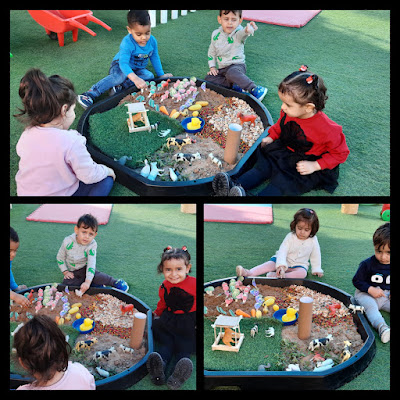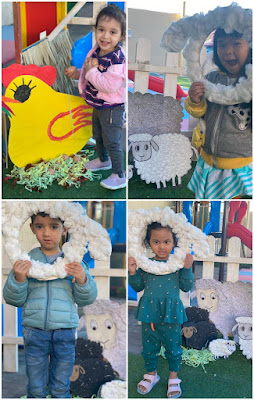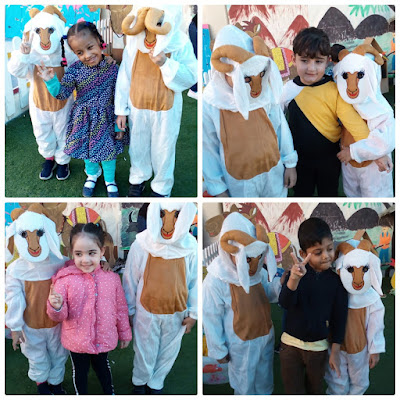Being
MEAN and SELFISH – Not really!
Young
preschoolers always seem to be getting into a tiff with other children. They’re
always concerned about themselves, thinking about their interests and never
seem to listen to others. Are they self-centered or self-indulgent and wrapped
up in their own selves?
Young children
are unable to see different perspectives, sympathize with others and reason.
This inability is termed as EGOCENTRISM. It’s all about “I, ME and MYSELF” for
these little ones. This doesn’t mean that they are selfish or self-obsessed.
This is simply the way they see the world around them and assume that the others
see what they see, hear and feel exactly the same as they do.
When dealing
with young children, it is imperative that we as adults consider the various
stages of development in a preschool child’s life.
Is
your child going through this stage of development? Let’s find out:
When playing
hide-and-seek with your preschooler, your child hides in a manner that his
physical presence is actually apparent. Your child may simply cover his/her eyes, or slide
under a chair while his/her body is sticking out. This is because they assume that
they are invisible to others when they themselves cover their faces or hide under
the chair. What they see is what they think others see – if they cannot see others……
then surely others too cannot see them While
watching television, they step in front of the screen blocking everyone else’s
view. They do not have the slightest idea that others are unable to see as a
result of their action because they themselves are getting an unobstructed view
of the screen.
An orphan child
who is raised by his grandfather, sees all fathers as grandfathers. This is
because in his household, he has never known a father. So in his world, a
father does not exist but only grandfathers.
When your child snatches a toy from another child and on being asked about how the other child must be feeling, your child says ‘happy’ or ‘fine’. This does not make your child mean in any way. The child just does not have the ability to empathize with the viewpoint of the others.
How
do we, as adults, help young children to “see” things in the right perspective?
1. Help the child to connect the dots:
The child does not understand someone else’s viewpoint. “When Sam had the toy,
he was very happy but now when you took it away, he is sad.”
2. Teach your child to empathize:” You
took away the toy and now Sam is crying as he is sad.”
3. Pair and Share:
Pair your child with a friend and encourage them to share his/her stuff with
the other child. When your child shares, he learns to talk about his emotions
and indulge in co-operative play.
4. Do not label the child:
The child is not selfish, mean or self-centered. Do not call them names. He/she
simply needs to be encouraged to talk about his/her feelings, express them in
words.
5. Do not hasten:
By the time your child is 5-7 years of age, he/she will transit from this
stage. Enjoy this stage, live every moment of it while helping your child to
cope with his/her egoistic tendencies.
Conclusion: Life
with preschoolers is all about learning to grow for the child as well as for
the parent. Conflicts will arise, however, it is essential that we do not get swayed
away in the idiosyncrasies of childhood but own up, take on the responsibility
and direct our little ones towards right conduct.














































